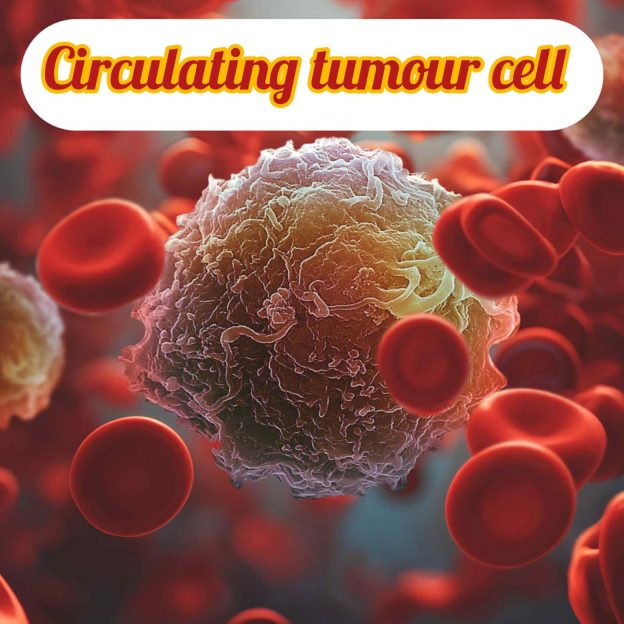One of the most frequent questions I receive is: “Is there a blood test that can tell me for sure if I have cancer?”
Recently, a lot of information has emerged about a modern test—not an advertisement—that detects circulating tumor cells (CTC) in the blood. What is this test really about?
Let’s clarify together.
What are circulating tumor cells (CTC)?
When a tumor develops in the body, some cells can break away and enter the bloodstream. These are called circulating tumor cells. Their presence can indicate a malignant process, even in early stages, before the tumor is visible on imaging tests (CT, MRI, ultrasound).
What are the benefits of the CTC test?
✔ Early detection: It can identify traces of cancer in its early stages.
✔ Personalized screening: It is especially useful for people at high risk (family history, exposure to risk factors).
✔ Monitoring: Oncologists can track treatment response or detect recurrence.
✔ Medical guidance: A positive result does not indicate the tumor’s location, but it warns that further investigation is needed.
When is it recommended?
The test is recommended especially for people aged 40–70, when cancer risk significantly increases. However, there is no strict age limit—it can also be performed at younger ages, especially if there are risk factors or family history.
How does it work and how sensitive is it?
A blood sample is analyzed using special technologies that identify abnormal cells with tumor characteristics. The test is highly sensitive, but not 100%. In most cases, if there is active cancer, CTCs can be detected. However, some small tumors or those with specific biological features may go undetected.
What are the limitations and disadvantages of the test?
✔ It does not indicate the tumor’s location. The test only shows oncological risk; additional tests are needed to identify the type and location.
✔ Possible false negatives or false positives. It does not replace classic diagnosis based on imaging, biopsy, and histopathology.
✔ It does not replace an oncological consultation. It is just one piece of the puzzle, not the final diagnosis.
Is it the same as tumor markers?
No. Tumor markers (CA-125, PSA, CEA, etc.) are proteins found in the blood that can change in cancer, but also in many benign diseases. The CTC test detects circulating malignant cells, giving it higher specificity.
Is it confused with genetic tests?
No, it should not be confused with genetic panels (BRCA1, BRCA2, TP53, etc.), which analyze DNA to assess genetic predisposition to cancer.
- Genetic test: Shows the risk of developing the disease in the future.
- CTC test: Shows if there are already tumor cells in the body now.
Conclusion
The CTC test is a modern, promising method that complements the diagnostic tools in oncology. It is not infallible and does not replace classic investigations, but it can be a valuable warning sign for both doctor and patient.
My recommendation: Always discuss with an oncologist or specialist before deciding to take the test. Each result needs correct interpretation and a tailored medical plan.
